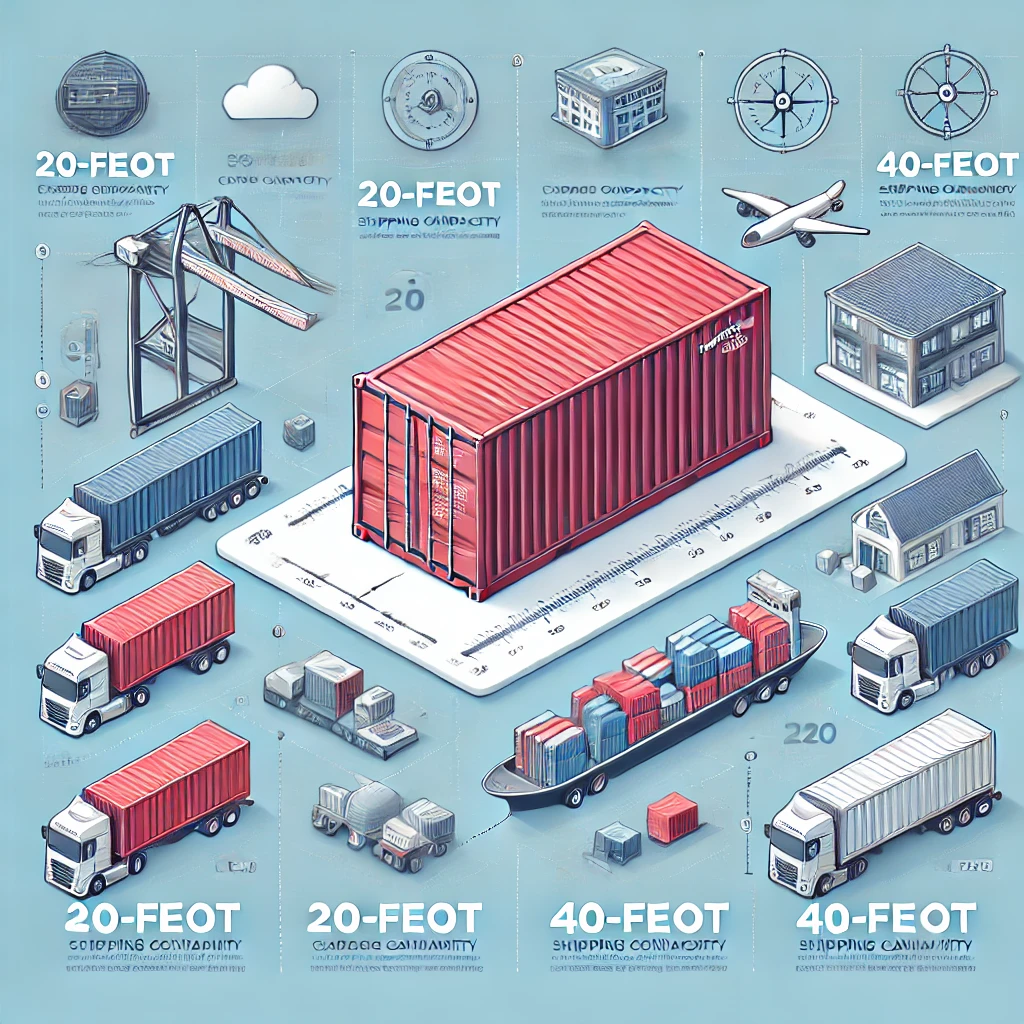Key Insights on 20-Foot Container Shipping
This article provides a detailed explanation of 20-foot container shipping, highlighting its key features, practical applications, and relevance for professionals and businesses.

What Is a 20-Foot Shipping Container?
A 20-foot shipping container is a standardized intermodal freight container used for transporting goods via sea, rail, and truck. It is one of the most commonly used container sizes in international trade, providing a balance of space, durability, and cost-efficiency.
Standard 20-Foot Container Dimensions
Measurement | Size (Feet) | Size (Meters) |
External Length | 20 ft | 6.06 m |
External Width | 8 ft | 2.44 m |
External Height | 8 ft 6 in | 2.59 m |
Internal Length | 19 ft 4 in | 5.9 m |
Internal Width | 7 ft 9 in | 2.35 m |
Internal Height | 7 ft 10 in | 2.39 m |
Max Cargo Weight | 24,000 kg | 52,910 lbs |

Key Features of 20-Foot Container Shipping
1. Standardized for Global Trade
- 20-foot containers comply with ISO shipping standards.
- Used worldwide for ocean freight, rail transport, and trucking.
2. Versatile Cargo Capacity
- Ideal for dry goods, machinery, consumer products, and industrial materials.
- Can accommodate bulk shipments and palletized goods.
3. Cost-Effective Shipping Option
- Lower freight costs compared to larger 40-foot containers.
- Suitable for small to medium-sized shipments.
4. Durable & Secure
- Made from corrosion-resistant steel for long-term durability.
- Equipped with lockable doors for cargo security.
5. Compatible with Intermodal Transport
- Easily transferred between ships, trucks, and trains without repacking.
- Improves supply chain efficiency and reduces handling costs.
Practical Uses of 20-Foot Container Shipping
1. Small to Medium Business Shipments
- Ideal for companies importing/exporting goods in moderate volumes.
2. E-Commerce & Retail Supply Chains
- Used for shipping consumer goods, electronics, and apparel.
3. Industrial & Machinery Transport
- Supports heavy-duty shipments such as auto parts and equipment.
4. Agriculture & Food Products
- Suitable for non-perishable foods, grains, and packaged goods.
5. Household & Personal Shipping
- Used for international relocation and moving household goods.

Advantages and Disadvantages of 20-Foot Container Shipping
Advantages | Disadvantages |
Lower shipping costs for small to medium loads. | Limited space compared to 40-foot containers. |
Easier to transport in urban areas and tight spaces. | Not suitable for oversized cargo. |
Compatible with various transportation modes. | May not be cost-effective for large shipments. |
More availability in shipping networks. | Higher cost per unit volume compared to larger containers. |
20-Foot Container vs. 40-Foot Container
Feature | 20-Foot Container | 40-Foot Container |
Capacity | ~33.2 cubic meters | ~67.7 cubic meters |
Weight Limit | 24,000 kg | 30,480 kg |
Ideal Use | Smaller shipments, cost-effective options | Large-scale shipments, bulk goods |
Transport Flexibility | Easier to maneuver and transport | Requires larger handling space |
Cost Efficiency | Lower cost for small loads | More economical for large shipments |

When to Use a 20-Foot Shipping Container?
- Best for small to medium cargo shipments.
- Ideal for businesses looking for cost-effective shipping solutions.
- Recommended for international trade, retail, and industrial shipments.
- Not suitable for oversized or high-volume bulk cargo.
Conclusion
20-foot container shipping is a cost-effective and versatile solution for businesses and individuals transporting goods globally. It offers a balance of affordability, security, and efficiency, making it an excellent option for small to mid-sized shipments.
By understanding the dimensions, benefits, and practical applications of 20-foot containers, businesses can optimize their supply chains, reduce costs, and improve overall shipping efficiency.
